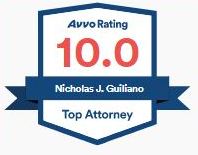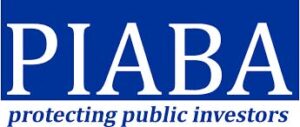The Securities Arbitration process begins with the filing of the Statement of Claim before the Financial Industry Regulatory Authority or FINRA. Filing a Statement of Claim before FINRA can be done electronically.
A Statement of Claim will generally contain the relevant facts and legal theories under which the “investor” beleives is entitled to relief or the recovery of their damages. Examples would include the violaton of the federal securities laws, state securities and/or blue sky laws, fraud, negligence, breach of fiduciary duty, the failure to supervise, etc.,
Depending upon the size of the claim, the FINRA filing fee and the required initial hearing deposit can range from $50 to $2,000. Presently all cases before FINRA are administered throught a Portal.
Respondents are served electronically and have 45 days from the date of service to answer or otherwise respond to the Statement of claim. An Answer filed by Respondent will generally offer a counter-version of the facts, and reasons as why investors claims are legally flawed.
An Answer filed by Respondent may also include documents, such as the customer’s new account forms.
 Although, generally, motions to dismiss are limited in arbitration under Code, a Respondent can file motions to dismiss if the panel determines that: (A) the non-moving party previously released the claim(s) in dispute by a signed settlement agreement and/or written release; (B) the moving party was not associated with the account(s), security(ies), or conduct at issue; or (C) The non-moving party previously brought a claim regarding the same dispute against the same party that was fully and finally adjudicated on the merits and memorialized in an order, judgment, award, or decision.
Although, generally, motions to dismiss are limited in arbitration under Code, a Respondent can file motions to dismiss if the panel determines that: (A) the non-moving party previously released the claim(s) in dispute by a signed settlement agreement and/or written release; (B) the moving party was not associated with the account(s), security(ies), or conduct at issue; or (C) The non-moving party previously brought a claim regarding the same dispute against the same party that was fully and finally adjudicated on the merits and memorialized in an order, judgment, award, or decision.
Generally, within twenty days following the entry of appearance by counsel or the filing of an Answer, the FINRA Dispute Resolution Staff will provide a supposedly randomly generated neutral list of arbitrators. The list will contain the educational and occupational background of each arbitrator, potential conflicts of interest, prior awards that they have rendered, and a brief narrative about the arbitrator. Parties are provided 20 days to complete and submit their arbitrator rankings to FINRA.
Among thirty arbitrators, the parties may strike all ten of the industry or non-public arbitrators, (which at least with respect one commentator, significantly effects the outcome of these cases). Among the remaining ten qualified public chair arbitrators and the other ten public arbitrators, the parties are allowed to strike up to four four arbitrators from each list.
The remaining arbitrators are ranked, and chosen by FINRA supposedly based upon the parties combined rankings or preferences.
The Initial Pre-hearing Conference
Typically, an Initial Pre-hearing Conference will be scheduled within 30 days of the submission of their arbitrator rankings by the parties.
At the Initial Pre-hearing Conference, according to a script, the arbitrators and the parties will select dates for the completion of discovery, the filing of any discovery motions, or other motions, and any telephonic hearings or conferences with respect to these motions, the filing of pre-hearing briefs or memoranda, and the final hearing dates.
The Disccovery Processs
The Financial Industry Regulatory Authority or FINRA has developed a “Discovery Guide,” which has now been incorporated into the FINRA Arbitration Code, that sets forth the categories of documents each party, Claimant(s) and Respondent(s) are required to produce to each other, and are otherwise “presumptively discoverable.”
 Cases are won and lost, or more accurately settled, as a result of discovery. Cases are won and lost, or more accurately settled, as a result of discovery. Respondents’ counsel, will generally, employ every device and ingenuity to avoid the production of highly relevant documents, hidden gems that can be found on inter-office e-mails, responses to exception reports, regulatory submissions, and sometimes documents contained in a broker’s employment files.
Cases are won and lost, or more accurately settled, as a result of discovery. Cases are won and lost, or more accurately settled, as a result of discovery. Respondents’ counsel, will generally, employ every device and ingenuity to avoid the production of highly relevant documents, hidden gems that can be found on inter-office e-mails, responses to exception reports, regulatory submissions, and sometimes documents contained in a broker’s employment files.
Respondents’ counsel also, typically, want unbridled discovery into every aspect of a claimant’s personal financial life, has referred to as the financial colonoscopy, and what I characterize support the two most traditional defenses: The You Should Have Know Better than to Trust Us; or The You Could Afford to Lose the Money Anyway.
The Financial Industry Regulatory Authority or FINRA has developed a “Discovery Guide,” which has now been incorporated into the FINRA Arbitration Code, that sets forth the categories of documents each party, Claimant(s) and Respondent(s) are required to produce to each other, and are otherwise “presumptively discoverable.” Discovery Guide is not “intended to remove flexibility from arbitrators or parties in a given case.” Discovery Guide at 2, Notice to Members 11-17. Discovery Guide, “Consideration should be given to the type of controversy and the issues involved in a particular case. Before ordering that a party produce a particular document, the arbitrator(s) should weigh a party’s ability to fully develop his/her case against the reasonableness of the burden to produce the document.” Arbitrators Manual (SICA 2007 at 12)(emphasis added). In addition to those categories of documents set forth in the Discovery Guide, the parties are allowed to propound addditional discovery requests.
 Problems in discovery are frequently encountered because parties believe that relevant, and often highly probative documents, are sometimes not produced by the opposing party because the discovery request, itself, either in whole or in part, was subject to some form of general objection, or because the withheld documents are somehow privileged, or the documents sought could not be “located” or were purported not to exist (because someone did not look for them).
Problems in discovery are frequently encountered because parties believe that relevant, and often highly probative documents, are sometimes not produced by the opposing party because the discovery request, itself, either in whole or in part, was subject to some form of general objection, or because the withheld documents are somehow privileged, or the documents sought could not be “located” or were purported not to exist (because someone did not look for them).
Problems in discovery are frequently encountered because parties believe that relevant, and often highly probative documents, are sometimes not produced by the opposing party because the discovery request, itself, either in whole or in part, was subject to some form of general objection, or because the withheld documents are somehow privileged, or the documents sought could not be “located” or were purported not to exist (because someone did not look for them). Most responses to discovery contain the “the familiar litany that interrogatories or document requests are overly broad, burdensome, oppressive and irrelevant will not suffice” and are improper.
“Privilege” is also a re-occurring theme or an issue. However, Discovery is a search for the truth and restrictions on discovery impede the search for the truth. Hickman v. Taylor, 329 U.S. 495 (1947). It is well established that the scope of discovery is to be construed broadly, and limitations on discovery are to be construed narrowly. Herbert v. Lando, 441 U.S. 153 (1979); Edgar v. Finley, 312 F.2d 553 (8th Cir. 1963). The test for relevancy is not whether the information sought is in itself admissible, but whether the information sought may reasonably lead to the discovery of admissible evidence. Oppenheimer Fund, Inc. v. Sanders, 427 U.S. 340 (1978)(discovery not limited to merits of case for variety of fact oriented issues may arise during litigation).
Inevitably in many cases, Motions to Compel Discovery are necessary, and the time to file and respond to discovery, the time or deadline for the parties to file and respond to motions to compel, and the time for a hearing with the arbitration chair to generally hear and determine outstanding discovery issues is scheduled at the intital prehearing conference.
The Final Evidentiary Hearing
Generally, from the date a Statement of Claim is filed to a final hearing the process generally takes between 12 and 15 months. Upon receipt of a Statement of Claim, the Respondent (i.e. the brokerage firm’s lawyers) have 45 days to respond. Generally, within twenty days following the entry of appearance by counsel or the filing of an Answer, the FINRA Dispute Resolution Staff will provide a list of proposed arbitrators from which the parties are provided 20 days to complete and submit to FINRA.
 Hearings generally last three days. However, three day hearings can easily turn into three week hearings, dispersed over a series of hearing dates over several months, because of recalcitrant witnesses, over-zealous counsel, or inattentive arbitrators, who like to start late, leave early, and take long lunches. Within 30 days, and often sooner, the Arbitration Panel will render an Award.
Hearings generally last three days. However, three day hearings can easily turn into three week hearings, dispersed over a series of hearing dates over several months, because of recalcitrant witnesses, over-zealous counsel, or inattentive arbitrators, who like to start late, leave early, and take long lunches. Within 30 days, and often sooner, the Arbitration Panel will render an Award.
Accordingly, it is generally agreed, that in most cases, from the filing of the Statement of Claim to the rendering of an Award, from start to finish, it takes approximately 12 to 15 months in most securities arbitrations.
Guiliano Law Group
Our practice is limited to the representation of investors. We accept representation on a contingent fee basis, meaning there is no cost to you unless we make a recovery for you. There is never any charge for a consultation or an evaluation of your claim. For more information, contact us at (877) SEC-ATTY. For more information concerning common claims against stockbrokers and investment professionals, please visit us at securitiesarbitrations.com.




OUR PRACTICE AREAS
FINRA Arbitration
The litigation of individual and group investor claims against securities broker-dealers and investment professionals adjuducated in arbitration before the Financial Industry Regulatory Authority.
Defective Financial Products
Alternative Investments, Promissory Notes, Structured Products, High Yield Bond Funds, Non-Marketable Real Estate Investment Trusts, Inverse and Leveraged ETFs, the Failure to Conduct Due Diligence.
Unsuitable Investments
Speculative or High Risk Investment Recommendations, Unsuitable Investment Strategies, Low Priced Securities, Customer Specific Unsuitability, Inappropriate Investment Recommendations.
Stockbroker Misconduct
Breach of Fiduciary Duty, Churing, Unauthorized Trading, Fraud, Stockbroker Theft, Ponzi Schemes, the Sale of Unapprovied investments.

